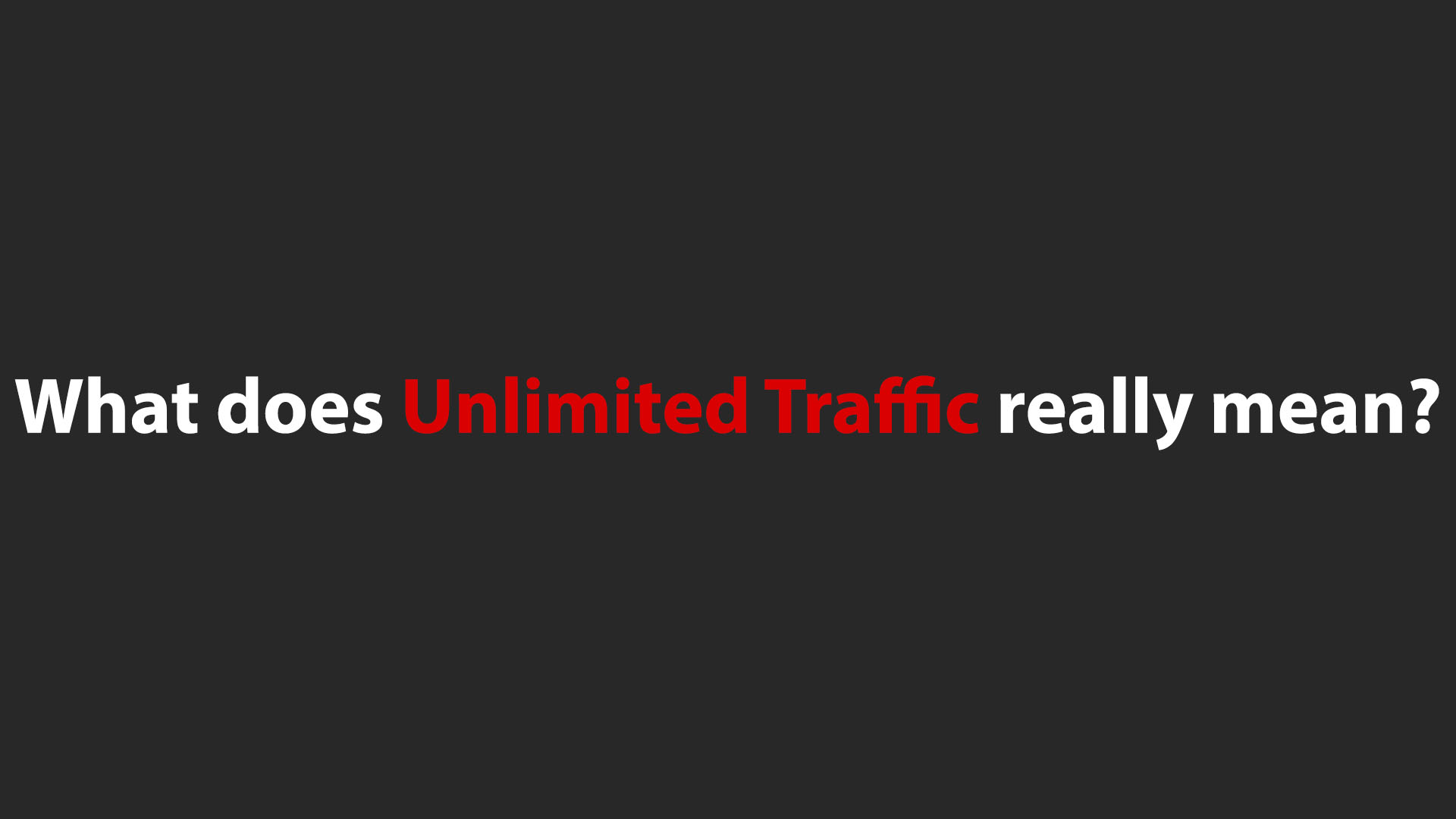What does "Unlimited Traffic" really mean?

When Promises Don't Equal Reality
Tariff with unlimited traffic, have you heard about it? This is used quite often in the hosting industry, so let's look at what it is. This expression, “unlimited traffic,” sounds like the perfect solution for any business, whether it's a small website or a large game server. It promises no restrictions, complete freedom and predictable expenses, sounds delicious, right? Let's figure out what it really is.
My experience shows that there is not always an unlimited amount in the hosting world, or it has its limitations. Today I want to discuss what it is and what tricks are hidden under unlimited access.
Decoding "unlimited": the myth of infinity
First, let's understand the terminology. Bandwidth is the amount of data that can be transferred between your server and its visitors over a certain period of time. It can be compared to a multi-lane highway: the more lanes (speed), the more cars (data) can pass in an hour.
When hosting providers talk about "unlimited traffic," they usually mean that they do not set a hard limit on the amount of data transferred. But that doesn't mean you can use an endless amount of traffic without facing consequences.
The reality is this: almost always, the promise of "unlimited" hides the so-called "Fair Usage Policy." This is an internal rule that allows the provider to monitor your activity and limit it if it goes beyond the "normal" range for this type of tariff. Ultimately, excessive consumption of resources can lead to:
- Speed reduction (so-called "trottling").
- Warnings from the provider.
- Forced transfer to a more expensive tariff.
Thus, "unlimited" traffic does not mean "unlimited". It means that you don't have a hard limit as long as your traffic doesn't exceed the unspoken threshold set by the provider's policy.
Hidden risks of "unlimited" tariffs
Why are many companies so fond of advertising unlimited? This is most often due to the fact that such offers are provided on shared hosting. In this case, your site shares the resources of one physical server with dozens or even hundreds of other users.
This leads to a serious problem that the industry calls the "noisy neighbor effect." If one of the "neighbors" on the server starts actively consuming traffic — for example, due to a sudden surge in traffic or a DDoS attack - this can slow down all other sites, including yours. You will pay for the service, but you will not be able to guarantee its stability and performance, which is critical for any business.
In contrast, hosting providers that honestly specify a fixed amount of traffic or a specific channel speed provide a more reliable and predictable solution. For example, our NVMe VDS servers provide dedicated resources that are independent of the load of other clients. In the end, such transparency and honesty turn out to be much more profitable than the vague promise of "unlimited".
Conclusion: Rely on predictability
In a hosting world where every millisecond and every byte can matter, choosing the right partner is the key to success. The promise of "unlimited traffic" may sound tempting, but in practice it often results in unpredictable limitations and performance issues. Explore the world of hosting in more detail, study the ToS to avoid embarrassment, and if you are not sure what the provider will provide, then check with him or on hosting-related forums.
Author: Anatolii Cohaniuc

